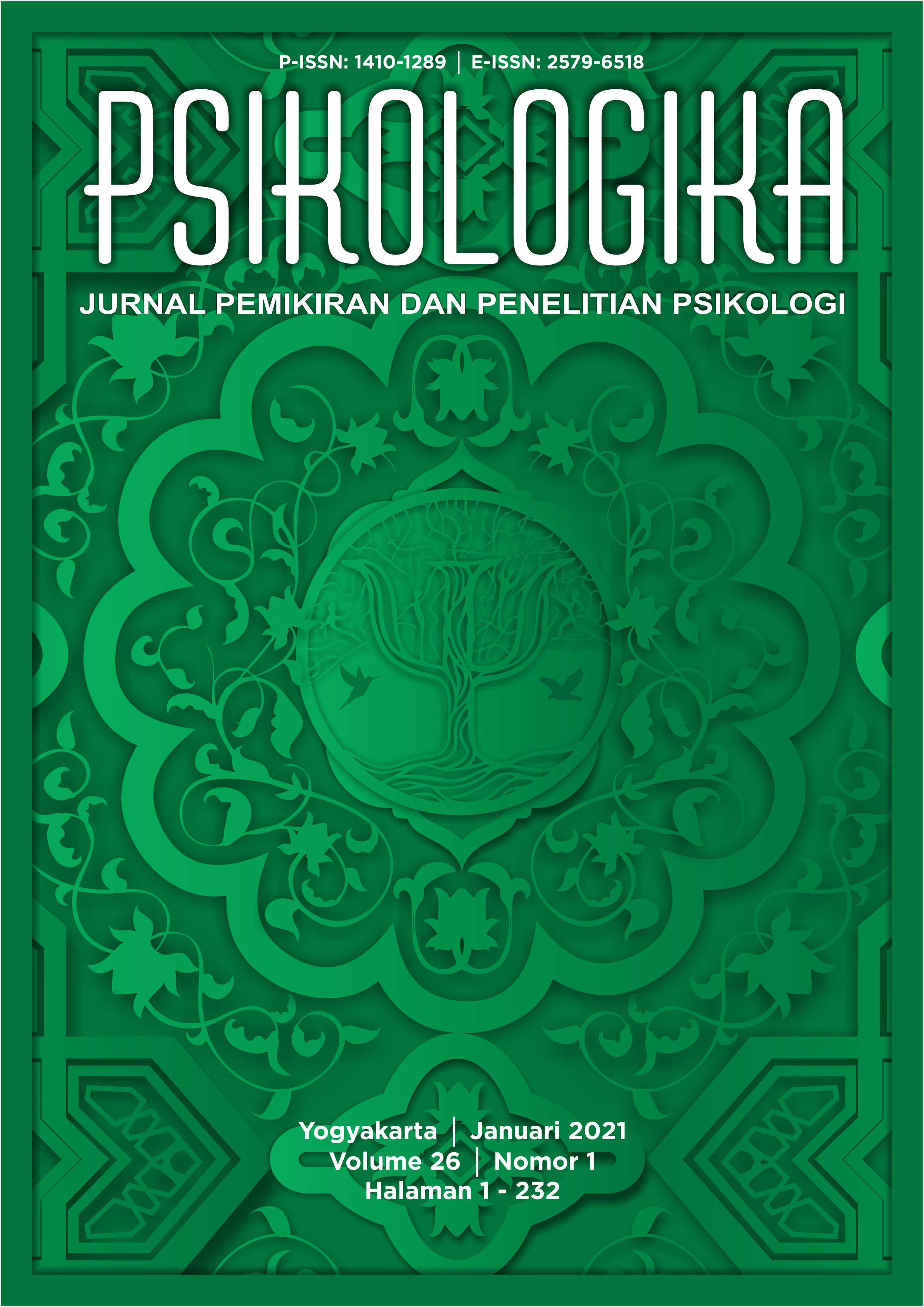Main Article Content
Abstract
Kebahagiaan lansia di panti sosial menjadi penting ketika berbagai permasalahan hidup lansia menyertainya. Penelitian ini bertujuan untuk mengetahui hubungan antara dukungan sosial dan kebahagiaan lansia. Responden berjumlah 40 orang yang memiliki fungsi pendengaran yang baik dari kedua jenis kelamin yang berusia >/= 60 tahun, bebas dari diagnosis depresi, demensia atau gangguan neurologis atau psikopatologis. Sampel dipilih dengan teknik purposif. Kebahagiaan diukur dengan kuesioner yang mengacu pada indikator Happiness oleh Seligman (2002) yang terdiri dari emosi positif maupun aktivitas positif dan terbagi menjadi tiga yaitu yang ditujukan pada masa lalu (bersyukur dan memaafkan), masa depan (yakin, percaya, harapan, dan optimis) dan masa sekarang (gratifikasi dan kesenangan). Dukungan sosial diukur menggunakan skala adaptasi dari The MOS Social Support Survey oleh Sherbourne dan Stewart (1991) dengan empat dimensi skala dukungan fungsional: emosional/informasional (emotional/informational), bantuan nyata (tangible), penuh kasih sayang (affectionate), dan interaksi sosial positif (positive social interaction). Hasil menunjukkan bahwa ada korelasi positif signifikan antara dukungan sosial dan kebahagiaan. Implikasi penelitian ini ialah pentingnya dukungan sosial bagi lansia untuk meningkatkan kebahagiaan di panti sosial.
Kata Kunci: dukungan sosial, kebahagiaan, lansia, panti sosial
Social Support and Happiness among Institutionalized Older People in Medan
Abstract. The happiness of the residents of nursing homes becomes important with the presence of various accompanying life problems. This research aims to see the relationship between social support and elderly happiness. It involves 40 respondents with good hearing of both sexes aged >/= 60 years, free of diagnosis of depression, dementia or neurological or psychopathological disorders. The sample is selected by a purposive technique. Happiness measurement with a questionnaire that refers to the indicator of Happiness by Seligman (2002) which consists of positive emotions or positive activities. The indicator is divided into three parts; addressed to the past (grateful and forgiving), the future (faith, believe, hope, and optimistic) and now (gratuity and pleasure). As to the social support I adapt the scale from The MOS Social Support Survey by Sherbourne and Stewart (1991) with four dimensions of functional support: emotional/informational, tangible, affectionate, and positive social interactions. The result confirms that there is a significant positive relation between social support and happiness. The implication of this research is the importance of social support for the elderly to increase happiness in social institutions.
Keywords: happiness, institutionalized older people, social support, the elderly
Article Details
Authors who publish with this journal agree to the following terms:
- Authors retain copyright and grant the journal right of first publication with the work simultaneously licensed under a Creative Commons Attribution-ShareAlike 4.0 International License that allows others to share the work with an acknowledgment of the work's authorship and initial publication in this journal.
- Authors are able to enter into separate, additional contractual arrangements for the non-exclusive distribution of the journal's published version of the work (e.g., post it to an institutional repository or publish it in a book), with an acknowledgment of its initial publication in this journal.
- Authors are permitted and encouraged to post their work online (e.g., in institutional repositories or on their website) prior to and during the submission process, as it can lead to productive exchanges, as well as earlier and greater citation of published work (See The Effect of Open Access).




